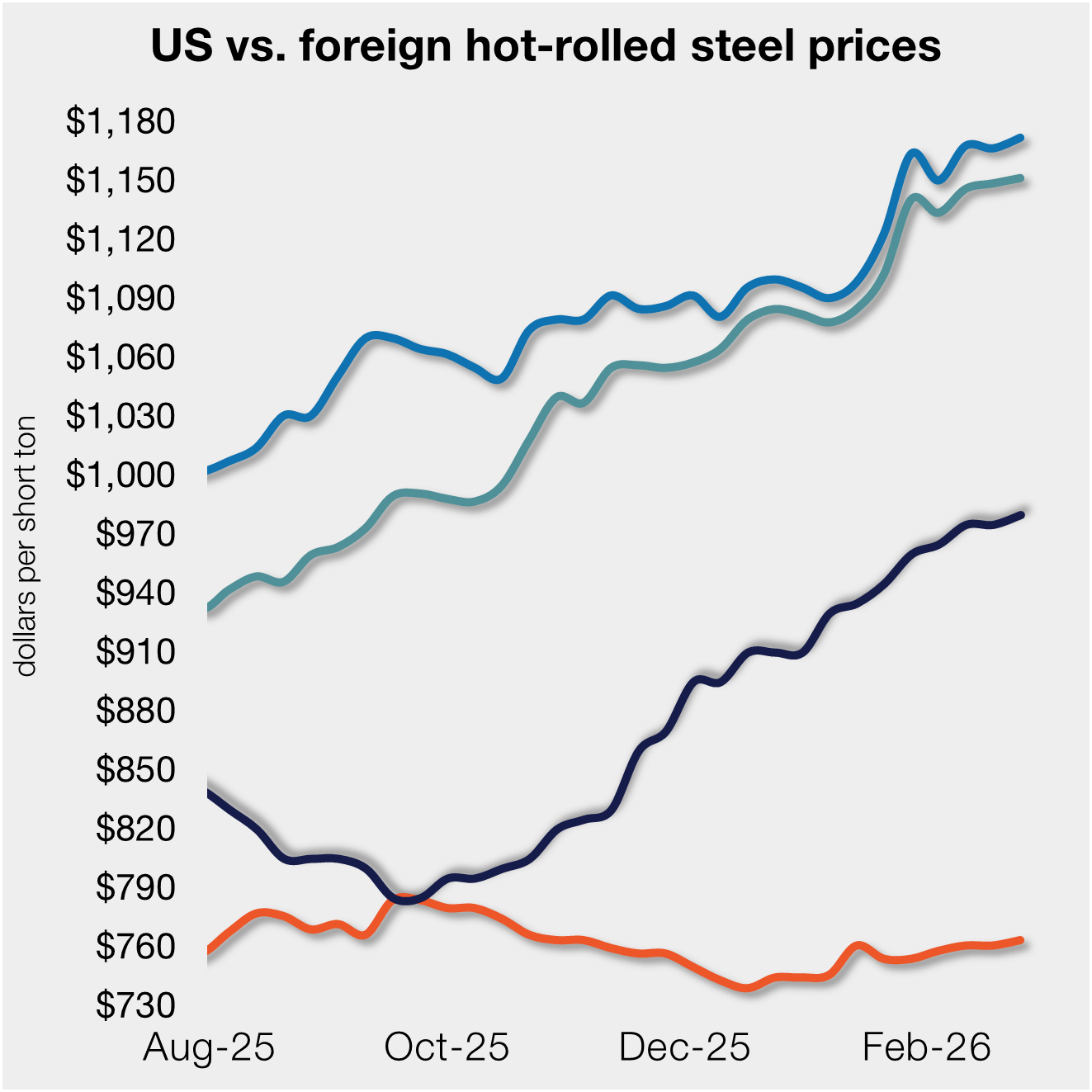Prices
November 4, 2024
Nucor maintains $740/ton HR price for second week
Written by Brett Linton
Nucor’s weekly consumer spot price (CSP) for hot-rolled (HR) coil was unchanged week on week (w/w) at $740 per short ton (st) as of Monday, Nov. 4.
This marks the second consecutive week the Charlotte, N.C-based steelmaker has published this price. The CSP was at $720/st for the two weeks prior to last week. It was $730/st one month ago.
The HR coil base price for the Nucor subsidiary CSI in California was also unchanged w/w at $800/st. It was at $780/st for the two weeks prior to that and $790/st one month ago.
Lead times of 3-5 weeks will continue to be offered, but Nucor noted for customers to contact their district sales manager for availability. Published extras will apply to all spot transactions.
SMU’s latest check of the market on Oct. 29 had HR coil spot prices ranging from $640-730/st, averaging $685/st, unchanged from the prior week.
Visit SMU’s mill price announcement calendar webpage to see historical steel price notices.







